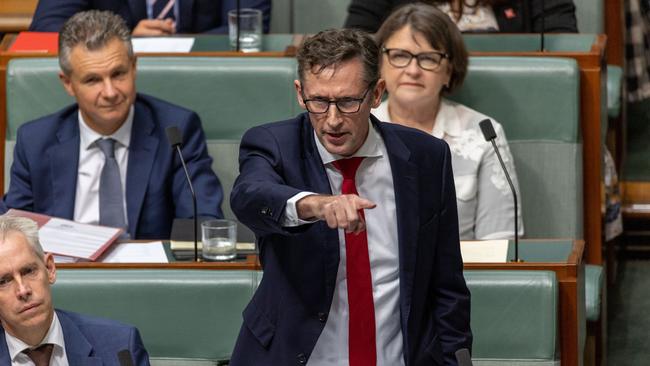
“I’m astounded by what’s proposed and I wonder have people actually read the details of what Minister Stephen Jones is preparing for super funds?” specialist financial services lawyer Fiona Halsey says.
Finance Minister Stephen Jones last month announced that big super funds – but not banks and insurers – would be allowed to widen their financial advice services.
He also indicated that large industry funds would get the green light to continue “collective charging”, whereby super fund members could be charged fees for financial advice services they might never use.
The government’s announcement was a clear win for industry funds which will get to retain more customers while reducing the clear risk that members who have accumulated wealth might leave and seek independent advice elsewhere.
But the outstanding feature of the new proposal – cherrypicked from Michelle Levy’s recent Quality of Advice Review (QAR) – is the status of big super funds as so-called “non-relevant” providers which means advisers in the funds effectively get a free pass when it comes to financial qualifications.
Halsey, who is a member of WA’s Law Society Courts Committee says: “If the government does not require the same high standards for a person to give advice within super funds, then hard won gains in this profession in recent year will be lost.”
The lack of consumer safeguards in the new plan has been a concern throughout the reform process. Earlier this year, actuary Michael Rice had warned the planned changes “would allow funds to offer comprehensive advice leading into retirement without any of the current restrictions”.
“Opening the market in the way proposed makes sense. However, the review is surprisingly weak on some consumer safeguards … The proposal does not differentiate between a simple piece of harmless advice and a complicated risky strategy,” he said at the time.
A recent upgrade of qualifications for mainstream financial advisers has caused turmoil across the industry, including a split among key lobby factions over the best way forward for the industry.
The tougher educational standards have been a key reason why the number of advisers had plunged from more than 30,000 a decade ago to less than 16,000 today.
The government has justified the opening of financial advice to big super funds as a matter of necessity in the face or rising advice costs and the skills shortage in the industry.
The costs of financial advice – weighed down by extensive regulation – has risen by more than 40 per cent in recent years to more than $3500 a year.
Among the new reforms the government has arranged is to cut a number of the more onerous documentation requirements. According to Mr Jones: “Most Australians do not have complex financial affairs that require a comprehensive advice plan from an adviser. They just want to know how their super works for them.”
But Halsey says offering cheaper mass-produced financial advice with none of the safeguards offered by “classic financial advisers” is asking for trouble.
“In medicine, for example, there is criticism that the ability to seek treatment from a doctor is becoming too expensive and there are insufficient numbers of doctors,” she says.
“However, the government response has not been to reduce the qualifications and experience benchmarks for doctors to allow non-medical personnel with lower qualification levels, or to dilute the professional standards and ethical requirements under which doctors operate and practice.
“Most people would regard that as an absurd proposition.”





A decision to allow big super funds to offer financial advice without the same educational and ethical qualifications required by existing advisers is set to mislead millions of consumers, a top lawyer says.